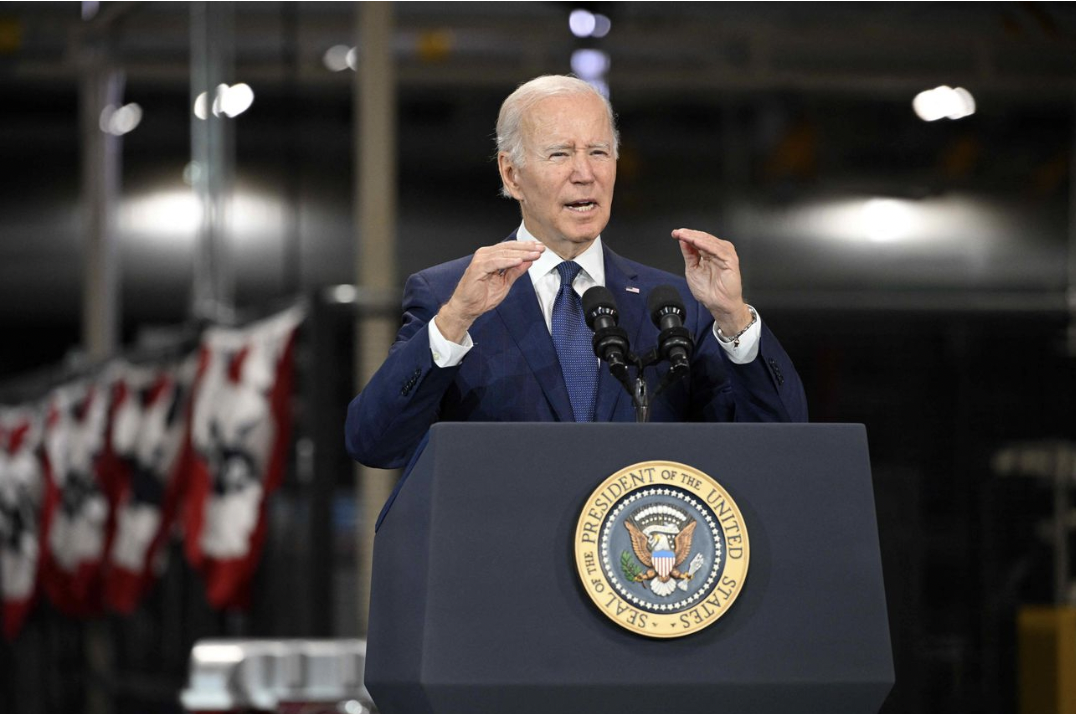ICYMI: Sec. Yellen: “Biden Has The Economy Back On Track”

FOR IMMEDIATE RELEASE: December 15, 2022
PRESS CONTACT: [email protected]
ICYMI: SEC. YELLEN: “BIDEN HAS THE ECONOMY BACK ON TRACK”
KEY EXCERPTS: “Because of President Biden’s plan, we have improved the economic well-being of American families and workers and strengthened the economy’s resilience in the face of significant global headwinds.”
“[Recent] economic reports indicate that the U.S. economy remains resilient. It’s growing amid a global slowdown and tightening financial conditions. The labor market is strong, with the unemployment rate near a 50-year low. Household balance sheets remain healthy, consumer spending is robust, and credit-card delinquencies are low. As the economy emerges from the global economic storm, the U.S. will be in a uniquely strong position to capitalize on the future.”
WSJ: Biden Has the Economy Back on Track
Treasury Secretary Janet Yellen
December 15, 2022
The global economic storm unleashed by a once-in-a-century pandemic and a brutal land war in Europe has caused three years of economic disruptions in the U.S. and around the world. These are turbulent times, but the policies of the Biden administration have propelled the American economy to one of the fastest recoveries in modern history. Because of President Biden’s plan, we have improved the economic well-being of American families and workers and strengthened the economy’s resilience in the face of significant global headwinds.
Since his first day in office, Mr. Biden’s goal has been to get the U.S. economy back on its feet and invest for the long term. In January 2021, the nation was facing some of the darkest days in its modern history. Approximately 3,000 Americans were dying from the novel coronavirus every day. The public-health crisis triggered an economic calamity, with millions of jobs lost and the country still haunted by fresh images of long lines outside food banks and unemployment offices. With the vaccines’ effectiveness untested, the country faced the tail risk of an economic downturn that matched the Great Depression.
Yet the worst didn’t materialize. Fears of a protracted economic crisis—in which millions of homes, businesses and livelihoods would be lost, many never to return—didn’t become reality. Instead, the American Rescue Plan and vaccination campaign helped spur the fastest pace of job creation in American history.
Importantly, the recovery avoided the scars that are typically inflicted during recessions and borne in their aftermath. Foreclosures and evictions fell and remain below pre-pandemic levels, as did bankruptcies and debt collection. By one measure, child poverty plunged to a record low last year. And early this year the uninsured rate reached an all-time low.
Now the Biden administration’s task is to navigate the economy’s transition from rapid recovery to stable and sustainable growth. Historically, these transitions haven’t been straightforward. But the task became significantly more challenging when Vladimir Putin launched his brutal invasion of Ukraine, which sent global energy and food prices skyrocketing.
The Biden administration’s top economic priority is to tackle inflation. The Federal Reserve has the primary responsibility, but we are taking complementary actions to expand supply and provide cost relief. While the future path of the economy remains uncertain, there are signs that the supply-demand imbalances that have been boosting inflation are now easing in many sectors of the economy.
Energy has been a key focus of the administration’s work. Most recently, the U.S., along with allies and partners, implemented an innovative policy to cap the price of Russian oil and stabilize energy prices. We have also shored up crude-oil supply through the president’s release of 180 million barrels of oil from the Strategic Petroleum Reserve. Today, average U.S. retail gas prices are about $1.50 a gallon lower than this summer’s peak.
We are seeing signs of progress in other areas where we’ve taken action, even as we redouble our efforts. Freight shipping rates and wait times at many U.S. ports have fallen, in part due to the Biden administration’s work to ease supply-chain bottlenecks. Late last month, there were no container ships waiting outside the Ports of Los Angeles and Long Beach, down from more than 100 at the start of this year. The administration has also provided targeted relief to families to help with rising costs of living. Thanks to the Inflation Reduction Act, millions of Americans will save on their energy, health-insurance and prescription-drug costs.
More broadly, recent economic reports indicate that the U.S. economy remains resilient. It’s growing amid a global slowdown and tightening financial conditions. The labor market is strong, with the unemployment rate near a 50-year low. Household balance sheets remain healthy, consumer spending is robust, and credit-card delinquencies are low.
As the economy emerges from the global economic storm, the U.S. will be in a uniquely strong position to capitalize on the future. This fall, I toured the country to see the early results of a trifecta of historic long-term investments that the Biden administration has made: a generational investment to modernize crumbling roads and bridges, a major expansion of American semiconductor manufacturing, and the most aggressive action on the climate crisis and long-term energy security in our nation’s history.
Together, these investments are expanding the American economy’s productive capacity while enhancing its resilience. Already, companies have announced tens of billions of dollars in investments in new production and manufacturing facilities that will extend America’s global competitiveness and expand economic opportunity. This ranges from Taiwan Semiconductor Manufacturing Co.’s announcement last week of a $40 billion investment in Arizona to the emergence of a new electric-vehicle “battery belt” across the South and Midwest.
Times can be tough, but Americans are tougher. From the depths of the crisis, we have bounced back—and the president’s economic plan has bolstered the U.S. economy’s resilience to today’s global challenges. Looking to the future, I am confident that our long-term investments, enabled by the historic legislation Congress has enacted over the past two years, will advance America’s global economic leadership in this decade and beyond.
###